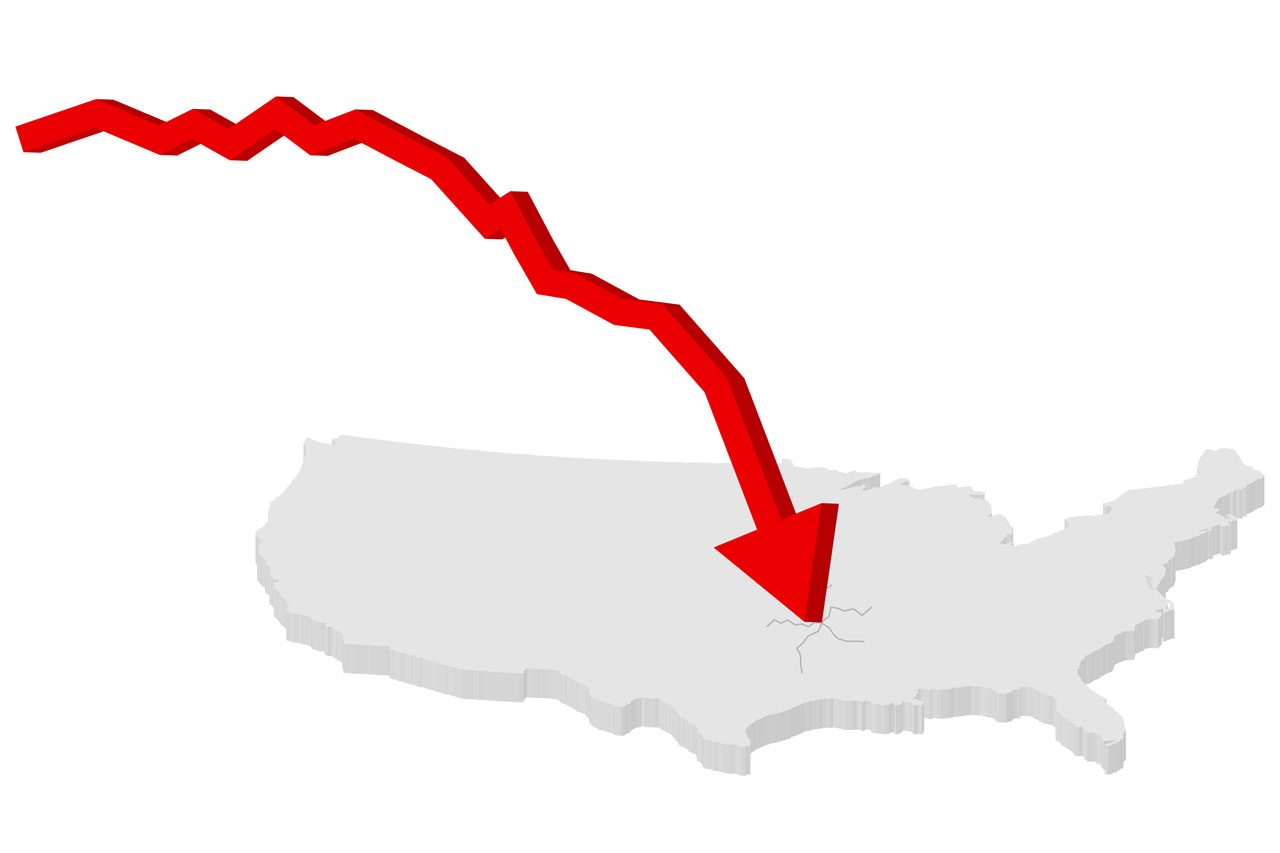Yes, we are headed for a bear market. But, that’s no cause for alarm, because there is always going to be another bear market. That’s how markets work – we have periods of economic expansion, followed by periods of contraction. I should add that I have no idea when the next bear market will occur, but if you’re wondering if a bear market will occur, then yes, it is 100% inevitable. You’ll be happier and a better investor if you accept this fact, too.
Today’s bull market will eventually run out of steam and we will have a bear market. And that will be followed by another bull market, and so on. The key thing to remember is that the overall long-term trend is up, and that bear markets are simply a brief interruption of a permanently growing global engine.
Since World War II, we’ve had roughly 13 bear markets (a drop of 20% or more), which works out to an average of once every five years. Each one of those bear markets felt like the sky was falling and that markets would never recover, but what has actually occurred is that the S&P 500 Index has expanded 100-fold from 19 in 1946 to 2100 today.
If you are just getting started investing, you might see perhaps 8 bear markets as you accumulate assets for 40 years. And if you are now retiring, you may experience 6 or so bear markets over a 30-year retirement.
It’s easy to agree that you won’t try to time the market when the market is doing great, like it is today. But even the steadiest investor is likely to have their resolve tested if the market goes down 20%. It’s human nature to want to stop the pain of losses and just get out of the market. Unfortunately, the moment of maximum pain will be at the bottom – exactly the worst time to sell your stocks.
With so much fear in the market today, some investors are wondering if we should sell and sit in cash until there is a decline. I can’t advocate this type of strategy. Even if you are successful in getting out of the market, you have to correctly get back into the market. I’ve yet to see any fund or firm be able to do this consistently over several economic cycles. And every study I have seen on individual investors has found that a market timing approach is likely to have worse returns than sticking with a buy and hold strategy.
Some so-called experts have been predicting a bear market for several years, and if you had sold your stocks based on their advice, you would have missed out on significant gains. Even after six years of positive returns, it’s possible that the bull market will continue to march upwards. No one has a crystal ball to predict how the market will perform in the short term. Market timing doesn’t work because it requires knowledge which doesn’t exist.
What we do know is that bear markets are inevitable and what really matters is how you respond to them. That’s why it’s vitally important to have a plan in place for that future storm while the sun is shining today. Here’s our plan and what you need to know about bear markets:
1) Bear markets are a brief interruption of a larger uptrend. If you’re a long-term investor, don’t worry about bear markets.
2) Don’t make a temporary decline into a permanent loss of capital by selling. Know that we plan to stay the course. We will not attempt to time the market. We choose an all-weather allocation which we will maintain in both bull and bear markets based on your needs, goals, and risk tolerance.
3) We rebalance portfolios annually. When the market is up, that means we trim stocks and add to bonds. If the market goes down, we will buy stocks when they are on sale. Remember that we are always highly diversified and avoid both sector funds and single country funds.
4) When you hear “Bear Market”, I want you to think of two words. First, inevitable, and second opportunity. When a TV is marked down by 20 or 30% off last year’s price, you don’t think its a disaster, it’s a chance to buy something you want at a lower price. Take advantage when the market puts stocks on sale.
Have faith in the future. Not a blind naivete, but an understanding of history and an appreciation for the opportunity which bear markets bring to us. The key question is not whether or not we will have a bear market, but if you are prepared and know what to do when we eventually do have one.







